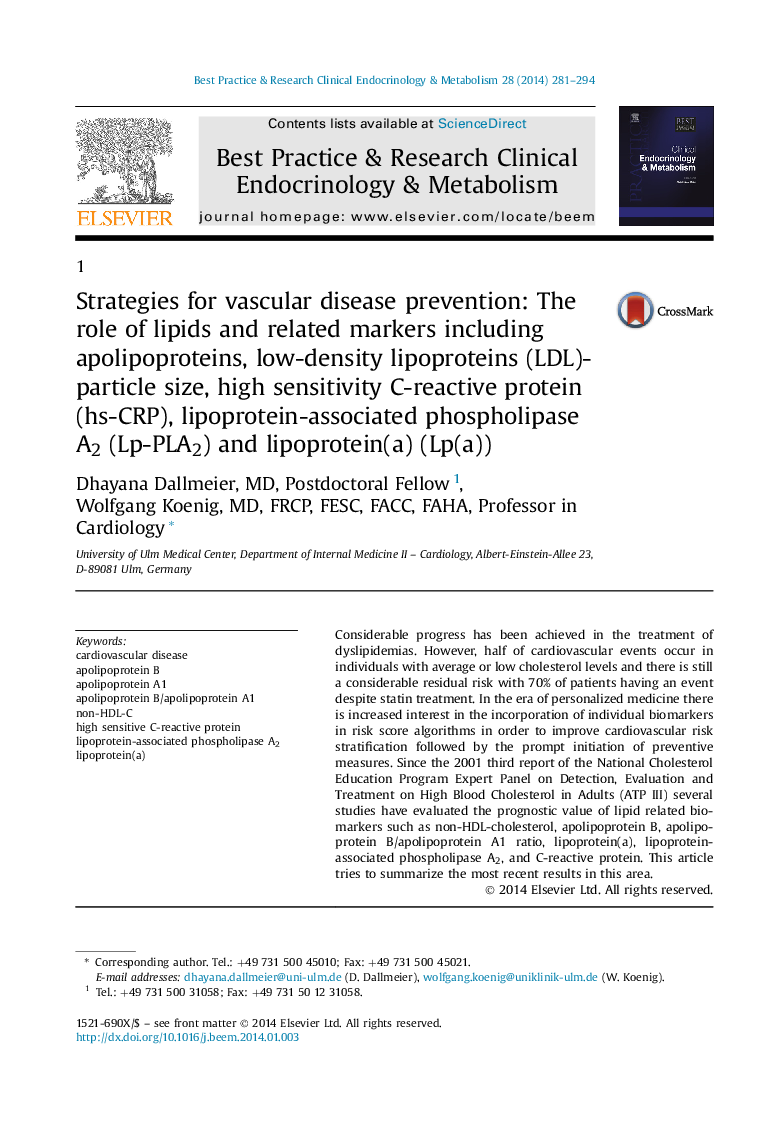| Article ID | Journal | Published Year | Pages | File Type |
|---|---|---|---|---|
| 2791621 | Best Practice & Research Clinical Endocrinology & Metabolism | 2014 | 14 Pages |
Considerable progress has been achieved in the treatment of dyslipidemias. However, half of cardiovascular events occur in individuals with average or low cholesterol levels and there is still a considerable residual risk with 70% of patients having an event despite statin treatment. In the era of personalized medicine there is increased interest in the incorporation of individual biomarkers in risk score algorithms in order to improve cardiovascular risk stratification followed by the prompt initiation of preventive measures. Since the 2001 third report of the National Cholesterol Education Program Expert Panel on Detection, Evaluation and Treatment on High Blood Cholesterol in Adults (ATP III) several studies have evaluated the prognostic value of lipid related biomarkers such as non-HDL-cholesterol, apolipoprotein B, apolipoprotein B/apolipoprotein A1 ratio, lipoprotein(a), lipoprotein-associated phospholipase A2, and C-reactive protein. This article tries to summarize the most recent results in this area.
